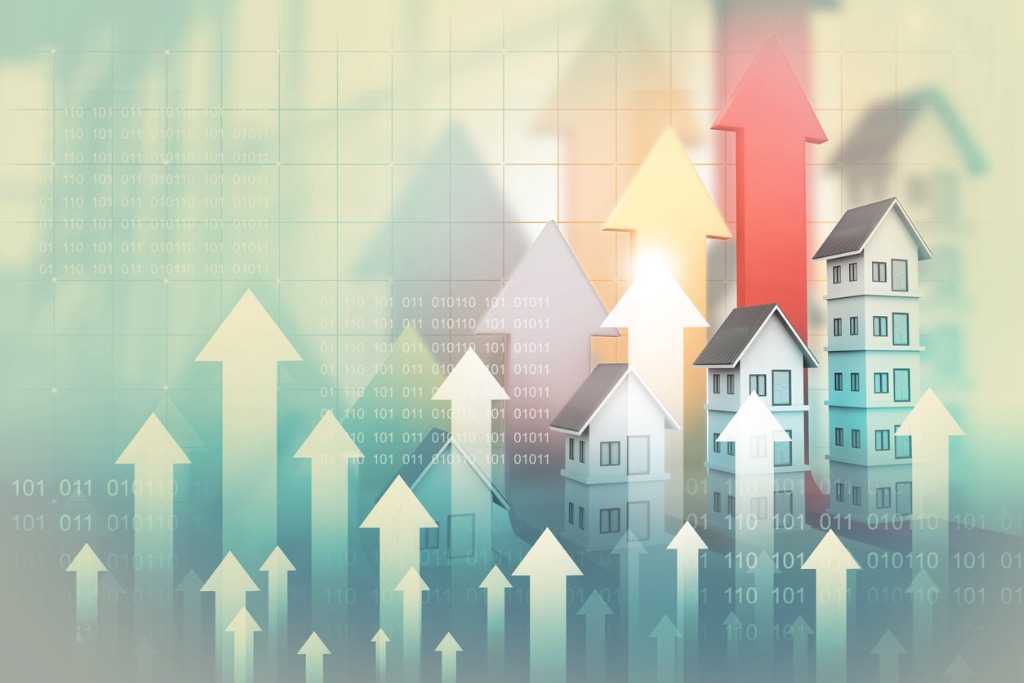Market value
In their daily advisory and valuation work, the valuation experts of the Swiss Landlords Association rely on the definition of market value given by the renowned valuation expert FrancescoCanonica(Immobilienwertmittlung (SIV), Canonica Francesco 2009):
Market value is the maximum unrestricted price that a potential buyer would be willing to pay for the property in question on the day of valuation in normal commercial transactions, taking into account all influences on value.
We consider this to be the lightest and most accurate definition of a complex subject
.
Market value broken down into individual elements
For a better understanding, let us break down the definition of market value into its main parts and follow Francesco Canonica’s explanations here as well:
Maximum price: corresponds to the maximum price still acceptable for the typical group of buyers. If a single, particularly interested buyer pays a price above the maximum price, we speak of an amateur price.
No price limit: when determining the market value, no restrictive rules, such as those applied by banks, insurance companies or valuation agencies, should be taken into account.
The potential buyer: every property has a specific circle of buyers, whose needs are best met by the property being valued.
Thevaluation day: the market value estimate is a snapshot of all factors that can be identified on the reference date and that have an influence on the property to be valued. Francesco Canonica talks about the ‘here and now’ and points out that factors influencing value (e.g. mortgage interest rates) can change in a short period of time and have a positive or negative impact on the maximum price to be achieved.
It is therefore advisable to be cautious with old property valuations. The market value is only valid if the factors influencing it do not change.
Practical example: an owner of a single-family home had the market value of his home appraised in January, and the appraiser indicated a market value of 1,250,000. Now it is June and the Swiss National Bank has changed the reference interest rates three times since January, reducing them from 1.5% to 0.75%. The estimate of the market value is no longer valid due to the abrupt change in the interest rate environment and must be adjusted.
In the case of normal business transactions: the seller and the buyer do not act under pressure and do not have relationships that would hinder normal business transactions (e.g. family relationships).
Taking all influences on value into account: the estimate of the market value must take into account all factors influencing the value formation process of the typical buyer’s circle.
For the property in question: the estimate of market value applies only to the property under assessment and not to other properties.
Not to be confused: market value is not a price
The two terms ‘value’ or ‘market value’ and ‘price’ are often confused, even by experienced market practitioners.
The Swiss Valuation Standards (SVS) define them as follows: ‘The value of a property represents a forecast of the price that could be obtained on the market in the event of a transaction. The price of a property, on the other hand, is the amount actually obtained when it is bought or sold’.
And what about market value?
The terms ‘market value’ and ‘market value’ are identical and can both be used
.
What is not a market value?
It is always surprising which terms are wrongly equated with market value. It is time to get to the bottom of this with a list – derived from Canonical.
The following are not market values
Bank valuations
Property valuations prepared by banks are used for financing purposes and are often characterised by a conservative attitude that has nothing to do with market value. The bank’s guarantee value, which defines the maximum amount of the mortgage granted by the bank, has even less to do with market value.
Insurance value
Insurance values are used to determine potential payments for insurance claims and premiums and are calculated as replacement value or current value. Insurance values are not market values, nor can they be converted to market values.
Practical example: a valuation expert from the Landowners’ Association values a single-family house built in 1956 in the canton of Aargau at CHF 900,000. The owner is disappointed by this value and suspects a valuation error, since the insurance value of the building is higher than CHF 900,000 and still does not take into account the value of the land. Unfortunately, this logic is flawed, as the insurance value of the building is a replacement value (taking into account the current costs of a new construction) and does not take into account the huge backlog of renovation work on the property.
Tax values
Tax values (e.g. official value, tax value, etc.) are determined at cantonal level and are used for income and wealth tax purposes. The calculation is completely different from market value and is based on political and fiscal objectives. The Landowners’ Association strongly advises against the widespread ‘magic’ conversion of tax values into market values.
A practical example: a potential buyer wants to buy an apartment building in Berne offered by the Landowners’ Association, but is put off by the price of CHF 1.2 million. His argument that the official value is ⅔ of the market value and that therefore the purchase price should not exceed CHF 900,000 is inadmissible. The potential buyer must therefore revise his price upwards or look for another property.
Amateur value
According to the Swiss Valuation Standards (SVS), amateur value includes not only economic motives, but also subjective aspects that the amateur values higher than most market participants (or the typical circle of buyers of the object). The amateur value is therefore higher than the market value.
Liquidation Value
Liquidation value is the value created under time pressure. Liquidation values are lower than market values


